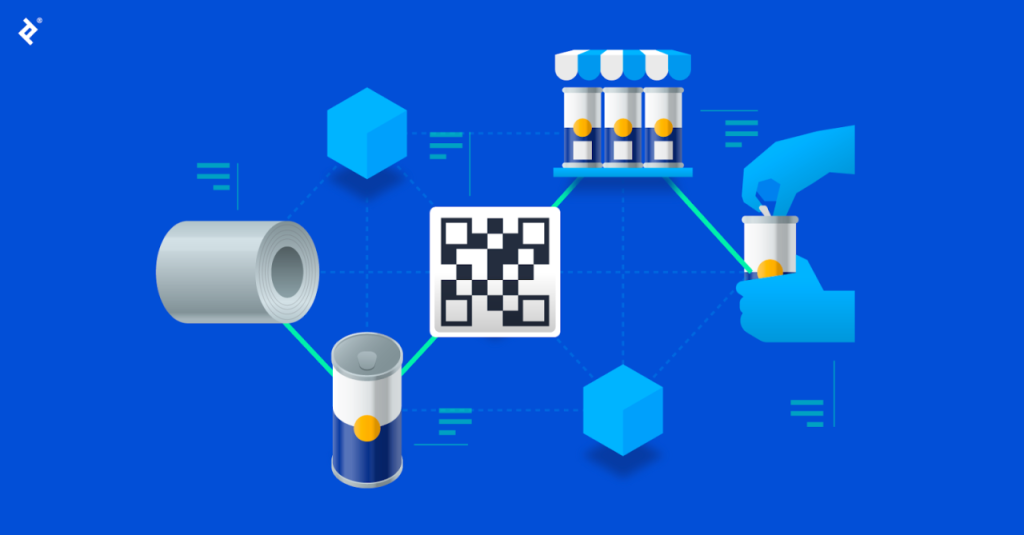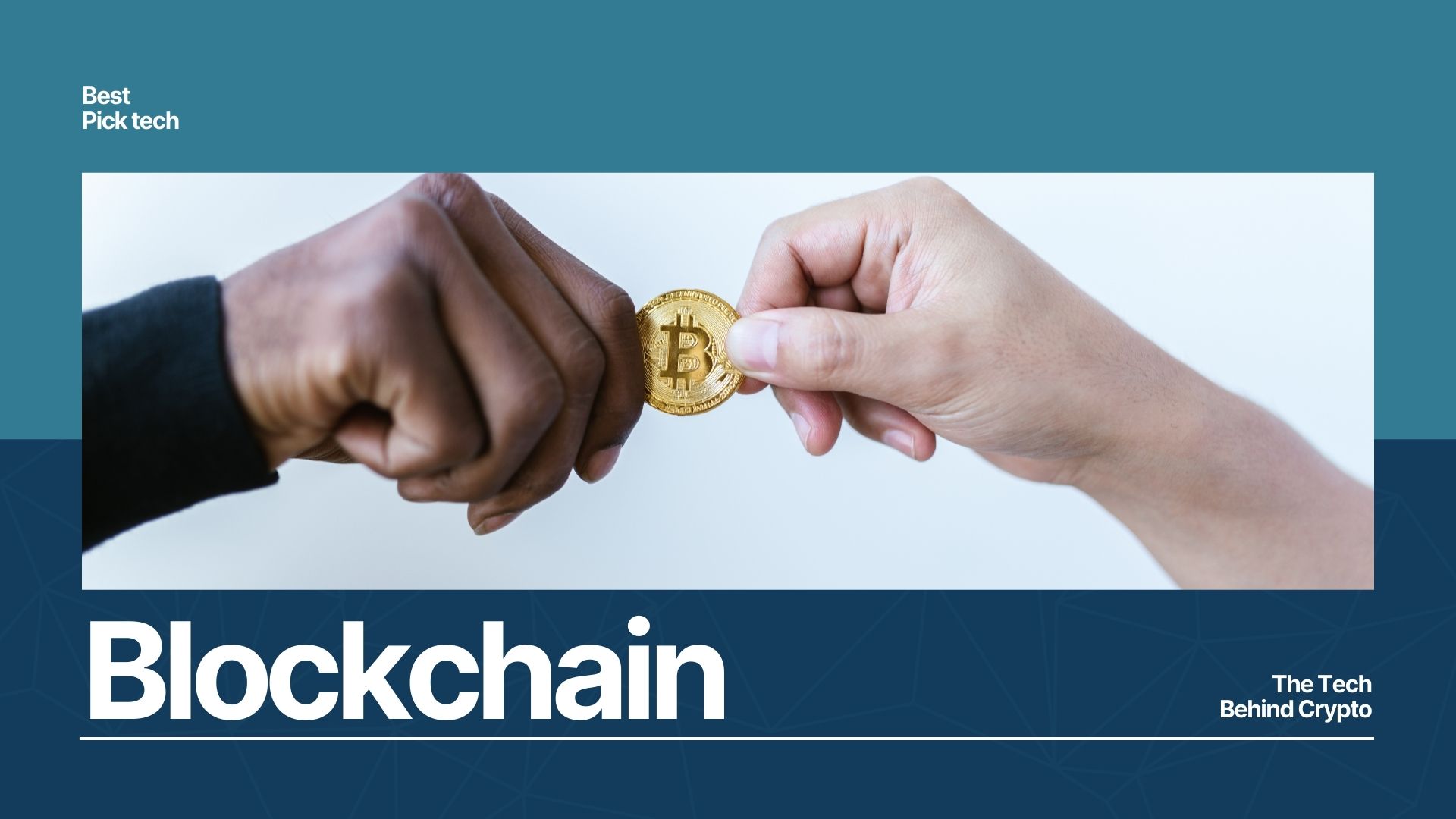In today’s globalized economy, supply chains are more complex than ever before. With goods and services moving across multiple borders and through various intermediaries, transparency, efficiency, and security are critical issues for businesses. Blockchain technology, initially popularized by cryptocurrencies like Bitcoin, is now transforming supply chain management, offering solutions that enhance accountability and streamline processes.
In this blog post, we’ll explore how blockchain is revolutionizing supply chains and why businesses are increasingly turning to this technology to solve some of their biggest logistical challenges.
1. Enhancing Transparency and Traceability
One of the biggest advantages of blockchain in supply chain management is its ability to provide transparency. Traditionally, supply chains rely on paper-based tracking systems and siloed digital platforms, making it difficult to maintain accurate records and ensure accountability. Blockchain, however, creates a decentralized ledger that records every transaction or movement of goods in real-time.
Key Benefits:
- Real-Time Tracking: Each item or shipment is assigned a unique identifier that can be tracked from the origin to the final destination. This provides companies and consumers with full visibility into where products come from.
- Immutable Records: Once data is recorded on the blockchain, it cannot be altered or tampered with, ensuring that the information remains accurate and trustworthy. This immutability reduces fraud and improves compliance with regulatory standards.
- Consumer Confidence: With consumers increasingly concerned about the authenticity of products, such as fair-trade goods or organic food, blockchain allows them to verify the journey of a product from its source to their hands.
For example, Walmart has already implemented blockchain technology to track food items from farm to store, reducing the time it takes to trace products in the event of a recall from several days to mere seconds.
Also: Top Emerging Tech Startups to Watch in 2024
2. Improving Efficiency and Reducing Costs
Supply chains are notorious for being inefficient due to the involvement of multiple intermediaries—brokers, shipping companies, customs, manufacturers, and more. These intermediaries often operate in silos, causing delays, miscommunication, and unnecessary costs. Blockchain technology offers a way to streamline these processes by creating a unified platform for all participants to access the same data.
Key Benefits:
- Automation Through Smart Contracts: Smart contracts are self-executing contracts with the terms directly written into code. When certain conditions are met (like goods arriving at a port), the smart contract automatically triggers the next step in the process, such as payment release or shipping authorization. This reduces the need for manual intervention and speeds up the supply chain.
- Reduced Paperwork: Blockchain eliminates the need for paper-based documentation, such as bills of lading and invoices. With a single digital ledger, the entire process becomes digitized, reducing paperwork, human error, and the risk of lost documents.
- Lower Transaction Costs: By cutting out intermediaries and automating processes, blockchain reduces transaction costs, making supply chains leaner and more cost-effective.
Companies like Maersk have partnered with IBM to develop a blockchain-based platform called TradeLens, which digitizes shipping records and streamlines supply chain operations, reducing shipping times and costs.
3. Boosting Security and Reducing Fraud
Security is a major concern in global supply chains, where counterfeit goods, theft, and fraud are rampant. Blockchain’s decentralized and immutable nature provides a higher level of security compared to traditional systems.
Key Benefits:
- Tamper-Proof Data: Once information is added to the blockchain, it is cryptographically secured, ensuring that it cannot be altered or hacked. This is particularly useful in industries like pharmaceuticals, where counterfeit drugs can enter the supply chain, posing risks to consumers.
- Authentication of Products: Blockchain can store detailed information about products, including where they were manufactured, who handled them, and whether they passed quality checks. This helps companies authenticate products and ensure they meet required standards, reducing the risk of counterfeit goods entering the market.
- Fraud Prevention: Since all parties in the supply chain have access to the same data, it’s nearly impossible to falsify records or commit fraud without being detected. Blockchain also ensures that sensitive data is encrypted, protecting it from unauthorized access.
For example, De Beers, the diamond company, uses blockchain to track the journey of diamonds from the mine to the retailer, ensuring that all diamonds are ethically sourced and free from conflict.
4. Increasing Sustainability and Ethical Sourcing
With growing concern around sustainability and ethical sourcing, blockchain offers a powerful tool for companies to demonstrate their commitment to social and environmental responsibility. By providing a transparent and verifiable record of a product’s journey, blockchain helps companies prove that they are sourcing materials responsibly and complying with environmental regulations.
Key Benefits:
- Monitoring Environmental Impact: Blockchain can track carbon footprints, water usage, and energy consumption throughout the supply chain, helping companies monitor and reduce their environmental impact.
- Verifying Ethical Labor Practices: Companies can use blockchain to ensure that their suppliers are complying with labor laws and ethical standards, such as paying fair wages and avoiding child labor. This transparency helps build trust with consumers and stakeholders.
- Supporting Circular Economy Initiatives: Blockchain can also be used to manage the lifecycle of products, making it easier to track recycling and reuse efforts, ultimately supporting a circular economy.
Provenance, a blockchain startup, helps brands like Unilever and Patagonia track the sustainability of their supply chains, from raw material sourcing to finished product delivery.
Conclusion: The Future of Blockchain in Supply Chain Management
Blockchain is no longer just a buzzword in the world of technology; it is actively transforming supply chain management across industries. By providing unprecedented levels of transparency, efficiency, and security, blockchain is helping companies optimize their operations and build more trustworthy, resilient, and sustainable supply chains.
As more businesses recognize the value of blockchain technology, we can expect to see even wider adoption in the coming years. Whether it’s for tracking food safety, preventing counterfeit goods, or ensuring ethical labor practices, blockchain is playing a pivotal role in shaping the future of supply chain management.
In 2024 and beyond, blockchain will continue to be a game-changer for businesses seeking to gain a competitive edge in the global marketplace. It’s not just about improving logistics—it’s about building a supply chain that is smarter, safer, and more transparent for everyone involved.
How blockchain is revolutionizing supply chain management pdf
Blockchain in supply chain example
Blockchain in supply chain management PDF
blockchain in supply chain: case study
Supply chain management blockchain projects
Blockchain in supply chain management research paper
Revolutionizing Supply Chain Management and Distribution with Blockchain Technology

Supply chains with blockchain technology provide unrivaled transparency. Every exchange of products and transaction is documented and made available to all parties involved. Customers and companies may check items’ provenance and authenticity, which boosts confidence in suppliers and brands. Products may be tracked from point of origin to final consumer, which discourages fraud and aids in the fight against fake goods. Protecting Information and Exchanges. The strong security features of blockchain shield private information and transaction histories. Data integrity is ensured since, once captured, the data cannot be changed backward without the network’s permission. Keeping Unauthorized Access Out: Modern encryption methods prevent unwanted access, which makes blockchain the perfect technology for managing private and proprietary data. Making Sure Documents Are Permanent and Reliable.Blockchain technology is drastically changing the distribution and supply chain environment. The fundamental characteristics of blockchain technology—decentralization, transparency, immutability, and security—are the foundation of this shift. Let’s examine how supply chain management and distribution procedures are being altered by these characteristics.
Because blockchain technology is decentralized, information in a distributed ledger may be accessed and shared by a number of supply chain participants. This differs from conventional centralized systems, in which data flow is managed by a single organization. Retailers, distributors, suppliers, and manufacturers can all work together more effectively. Their equal access to the ledger facilitates improved planning and cooperation. Blockchain streamlines operations and increases supply chain resilience against single points of failure by lowering reliance on middlemen or central authority. Increasing Credibility and Exposure. Supply chains with blockchain technology provide unrivaled transparency. Every exchange of products and transaction is documented and made available to all parties involved. Customers and companies may check items’ provenance and authenticity, which boosts confidence in suppliers and brands. Products may be tracked from point of origin to final consumer, which discourages fraud and aids in the fight against fake goods. Protecting Information and Exchanges. The strong security features of blockchain shield private information and transaction histories. Data integrity is ensured since, once captured, the data cannot be changed backward without the network’s permission. Keeping Unauthorized Access Out: Modern encryption methods prevent unwanted access, which makes blockchain the perfect technology for managing private and proprietary data. Making Sure Documents Are Permanent and Reliable. A record cannot be altered or removed once it is created because to blockchain’s immutability. As a result, a trustworthy and unchangeable audit trail of all supply chain transactions and movements is produced. It facilitates adherence to regulations and encourages responsibility among all parties involved.
Blockchain is now being used in a number of supply chain and distribution-related areas: Food Safety and Traceability: Businesses such as Walmart are employing blockchain technology to monitor the provenance of food products, cutting the time it takes to track goods from weeks to just a few seconds. Pharmaceuticals: The Drug Supply Chain Security Act (DSCSA) compliance and the fight against counterfeit medications are two areas where blockchain is being used. Luxury goods and apparel: To prevent counterfeiting and verify items, brands are utilizing blockchain technology.
Future Trends and Prospects: Supply chains may become more automated and intelligent as a result of the integration of blockchain technology with IoT devices and AI. Processes like payments and contracts might be further automated and streamlined with the use of tokenization and smart contracts. Blockchain has obstacles in supply chain applications, despite its potential. Managing substantial amounts of data and transactions on the blockchain continues to be difficult. Standardization is necessary to make sure that various blockchain systems can coexist peacefully. The way regulations are developing around blockchain technology may have an effect on how supply chains use it. Supply chain and distribution are being revolutionized by blockchain, which provides increased efficiency, security, and transparency. Supply chain management has enormous room for innovation and advancement, despite some obstacles. We may anticipate more inventive uses across a range of industries and wider adoption as the technology develops. This transformation is about rethinking and restructuring global supply networks to function in a digital age, not only about technology.
How to implement blockchain in supply chain
Blockchain in supply chain Management ppt
Benefits of blockchain in supply chain management
Companies using blockchain in supply chain
